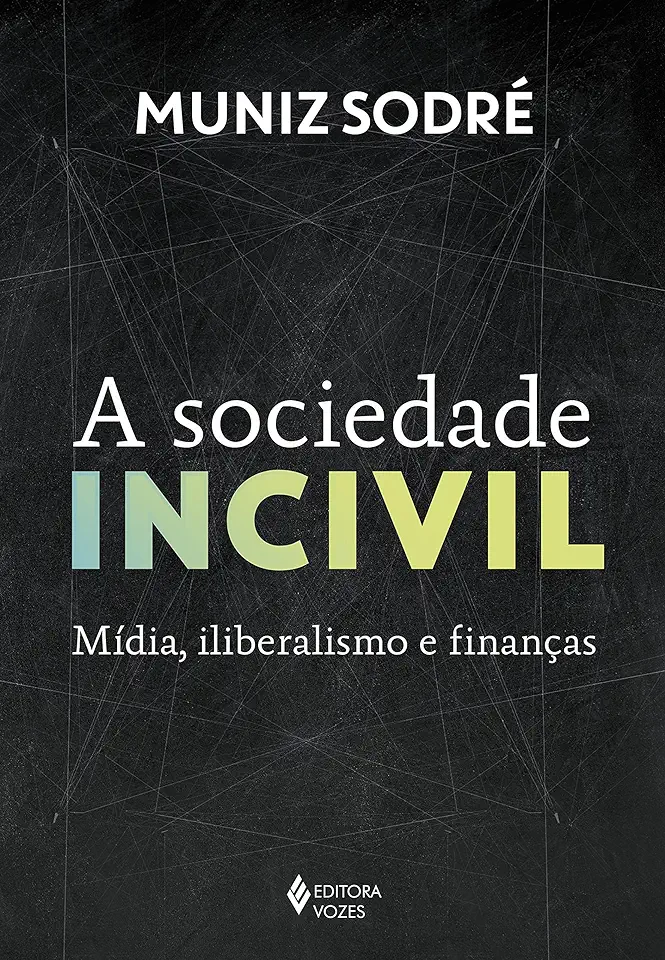
The Uncivil Society - Media, Illiberalism and Finance - Muniz Sodré
The Uncivil Society: Media, Illiberalism and Finance
In his book "The Uncivil Society: Media, Illiberalism and Finance", Muniz Sodré presents a compelling analysis of the current state of society, arguing that we are witnessing a decline in civility and a rise in illiberalism and financialization. Sodré draws on a wide range of sources, including history, sociology, and political science, to support his claims.
The Decline of Civility
Sodré begins by arguing that civility is essential for a functioning society. He defines civility as "the set of rules and norms that govern social interaction and allow for peaceful coexistence." Civility includes such things as respect for others, tolerance of different opinions, and a willingness to compromise.
Sodré argues that civility has been declining in recent years due to a number of factors, including the rise of social media, the decline of traditional media, and the increasing polarization of society. Social media has made it easier for people to spread misinformation and hate speech, while the decline of traditional media has led to a decrease in the quality of public discourse. The increasing polarization of society has made it more difficult for people to find common ground and compromise.
The Rise of Illiberalism
Sodré also argues that we are witnessing a rise in illiberalism, which he defines as "the rejection of liberal values such as individual liberty, freedom of speech, and democracy." Illiberalism is often associated with authoritarianism, populism, and nationalism.
Sodré argues that the rise of illiberalism is due to a number of factors, including the decline of the middle class, the increasing inequality, and the rise of global populism. The decline of the middle class has led to a decrease in social mobility and an increase in economic insecurity. Increasing inequality has led to a sense of resentment among those who feel that they are not getting a fair share of the pie. The rise of global populism has provided a platform for illiberal leaders to come to power.
The Role of Finance
Sodré also argues that the financialization of the economy has played a role in the decline of civility and the rise of illiberalism. Financialization refers to the increasing importance of the financial sector in the economy.
Sodré argues that financialization has led to a number of problems, including the erosion of the manufacturing sector, the increase in inequality, and the rise of short-termism. The erosion of the manufacturing sector has led to a loss of jobs and a decline in the middle class. The increase in inequality has led to a sense of resentment among those who feel that they are not getting a fair share of the pie. The rise of short-termism has led to a focus on short-term profits at the expense of long-term sustainability.
The Way Forward
Sodré concludes by arguing that we need to rebuild civility and restore liberal values in order to create a more just and sustainable society. He calls for a number of reforms, including the strengthening of the middle class, the reduction of inequality, and the regulation of the financial sector.
"The Uncivil Society" is a must-read for anyone who is interested in understanding the current state of society and the challenges that we face. Sodré's analysis is insightful and thought-provoking, and he offers a number of concrete proposals for how we can create a more just and sustainable world.
Why You Should Buy This Book
"The Uncivil Society" is a timely and important book that offers a unique perspective on the current state of society. Sodré's analysis is insightful and thought-provoking, and he offers a number of concrete proposals for how we can create a more just and sustainable world. If you are interested in understanding the challenges that we face and how we can overcome them, then I highly recommend that you read this book.
Here are a few reasons why you should buy "The Uncivil Society":
- It is a well-written and engaging book that is accessible to a wide range of readers.
- It provides a unique perspective on the current state of society.
- It offers a number of concrete proposals for how we can create a more just and sustainable world.
- It is a must-read for anyone who is interested in understanding the challenges that we face and how we can overcome them.
Enjoyed the summary? Discover all the details and take your reading to the next level — [click here to view the book on Amazon!]